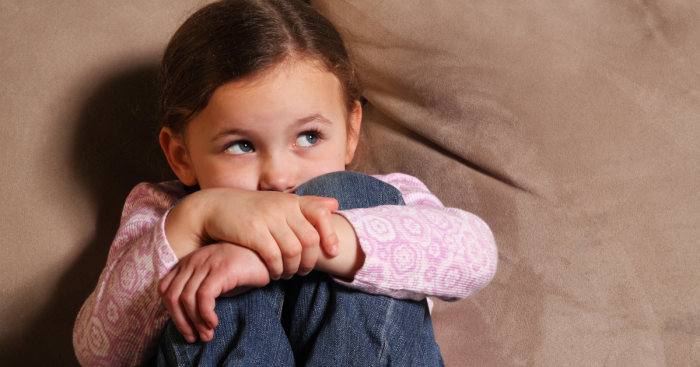It’s a fact of motherhood that all babies and young children cry. It’s their only form of communication to express a need, especially since they are at an age when words will fail them or when they cannot handle or deal with the emotions of the moment.
There is always a reason behind the tears, even when it appears to be sudden or random with no apparent cause. Why did your child have that tearful outburst when he was just sitting there playing nicely with his building blocks? Is he feeling unwell? Did he hurt himself? Or is he just frustrated that his building blocks wouldn’t stack up as he wanted them to?
Whether it’s pain, tiredness, discomfort, anger, confusion or just needing attention, crying is a normal response[1] to upsetting situations the child cannot resolve. When he cannot cope with his feelings, crying ensues. It’s an automatic reaction.
Here are 10 reasons why children may have a bout of sudden uncontrollable crying.
1: They are Sick or in Pain
Being unwell or in pain could cause sudden uncontrollable crying. If the child is still a toddler with limited vocabulary, check for signs of injury or swelling. Perhaps he has fallen down or bumped into furniture. If there has been no accident and no obvious injury, then check for the little things, like a hair or thread being wound tightly around his toe or his finger was momentarily stuck in a toy.
If he’s still crying, calmly ask him if he’s feeling any discomfort and if there’s none of that then check for a fever. Check for additional symptoms such as discharge from the ear, nose or if he has a bloated tummy. If he has been having a cold, check for an ear infection. Sometimes, ear infections accompany a cold. In fact, ear infections typically start off as a cold[2] alongside a cough, congestion and a runny nose.
Ear infections are painful. Apart from having difficulty hearing, the child will feel pressure or fullness inside the ear. There may be discharge and irritation inside and around the ear. The child will be irritable and restless, lose their appetite and may even lose their balance and fall down[3]. This may explain the sudden crying.
Contrary to crying, sometimes the opposite can occur if a child is unwell. He may become quieter, lose interest in play, become moody and sullen and have trouble sleeping.
Even if you don’t see any outward signs of sickness or injury, a headache and definitely an earache could definitely cause your child to cry out loud when the pain suddenly increases.
2: They want to Release their Emotions
This one applies to adults too. Ever heard of the advice where having a good cry will make you feel better? According to science, crying is beneficial as it is a self-soothing mechanism[4] that releases stress and tension, putting us in a better mood and making it easier for us to fall asleep afterwards. Moreover, when we shed emotional tears, the body releases oxytocin and endorphins – two “feel good” hormones that ease both physical and emotional pain and help promote a sense of well-being.
This self-soothing behaviour applies to children too. They, of course, don’t know the exact science behind crying. They just know that when they feel emotional pain, anxiety, sadness, anger or frustration, they need to let it out as a tearful emotional purge. If you see your child crying for no apparent reason, understand that he is just self-soothing. Ask if he wants to talk and offer him empathy and emotional comfort in the form of a understanding shoulder to cry on.
3: They want Attention

Every mother has gone through this. You’re busy with work or you’re in the middle of a conversation with someone and suddenly your child gets very clingy. He’s tugging at you and he starts to cry. The longer you try to carry on with your work or conversation, the louder he will wail. You’re very familiar with this scenario: He wants your attention.
Take a deep breath, stop whatever you’re doing and ask him what he wants you to do for him. If you can, put aside your work for a while and explain to him why it’s important that you need time to yourself to finish your work. Promise him that you will spend time with him after you’ve finished your work. A lot of times, children just don’t understand that mothers have other things to do aside from looking after them. You can also diffuse the situation by engaging him in parallel activity. Similar in concept to parallel play[5], this is to engage him in doing an activity (such as colouring) at the same time as you do your work. This way, he can take his focus off you while he engages himself in a positive manner. Parallel activity will also teach your child independence.
4: They may be experiencing Separation Anxiety

Separation anxiety is a normal stage of development for babies and toddlers[6]. When their parents leave for work or go out without them, they will be clingy, cry and maybe even have tantrums. However, most children outgrow separation anxiety by the time they are about three years of age.
Sometimes, separation anxiety grows into a more serious condition known as Separation Anxiety Disorder (SAD)[7]. It may start as early as preschool age when the child becomes overly anxious and worried about being left alone or parted from home and family. He may worry about the safety of a family member over the possibility that he or she might not return home after going out and these worries could turn into sleepless nights, bad dreams with a theme of separation and refusal to go to daycare or school out of fear of separation. The child may also have frequent stomachaches, headaches and other physical complaints whenever separation from a parent or caregiver is anticipated.
SAD may be an inherited disorder from parents who have an anxiety disorder themselves or it may be triggered by trauma such as divorce or loss of a loved one or moving away to a new area.
While it may be normal for a baby or toddler to have separation anxiety, if it seems intense or prolonged, you should talk to your paediatrician for a proper diagnosis and treatment.
5: They may be Sleepy
When a child is overly tired or has missed his nap time or fought going to bed the night before, he will often become cranky and start fussing and crying. Toddlers need between 11 and 14 hours of sleep every 24 hours[8], including one or two daytime naps. Missing his daily quota of sleep time is bound to result in sudden uncontrollable crying. Telling him to go to bed won’t work because he is already acting up. Instead, wind him down by talking calmly. Perhaps give him a cup of warm milk, then take him to bed, turn off all screen devices, read him a bedtime story and talk casually until he falls asleep.
6: They may be Overstimulated
Small children will feel overstimulated when their senses have been overloaded by bright, flashing lights, loud voices, lots of noise or music or getting too excited playing boisterous games. Sometimes playing too many video games and watching too much TV can cause a child to be overstimulated but so can a busy outing or social gathering.
Toddlers can’t understand why they feel wound up and overwhelmed but when they do, the result will usually be a meltdown of tears. Sometimes it may even resemble a tantrum.
You can protect your child from being overstimulated by keeping to their normal routine for meals, naps and play times regardless of the activities. If your child is crying uncontrollably, you can try the following[9]:
- Reduce the noise in the room
- Reduce the amount of movement and visual stimulation in the room
- Turn down the lights and ask others not to bother your child
- To help him relax or settle down, turn on white noise such as a recording of steady rain, radio static, vacuum cleaner etc
- Give your child 15 minutes to settle. If he hasn’t done so by that time, check to see if there’s another reason for his crying.
7: They are feeling Scared

Children have all types of fears and sudden tears may signal that your toddler is scared of something. It may be loud sounds such as fireworks or thunder, people in costumes, strangers, the doctor and injections, dark places, a particular room or what’s behind a corner, being alone and so on.
Some parents may inadvertently be perpetuating fear and creating nervous children if they are in the habit of scaring their children into obeying them. An example would be: “If you don’t eat your vegetables, the police will catch you and put you in jail!” Be careful. You may think that it’s a harmless fear tactic to solve an immediate problem but in the child’s mind, that fear may morph into a bigger issue that will cause more problems later on.
8: They have Night Terrors
Your child may be sleeping soundly but two or three hours later, he wakes up screaming and crying and seems inconsolable no matter what you do. He may even get up and run from the bed.
Don’t panic. It’s just a nightmare he’s having, only it’s more dramatic. It’s called Night Terror[10] and it is common in children from ages one to eight. They may wander around with their eyes open but will not recognise you or respond to directions because they are not really awake.
A child who is having a Night Terror is stuck halfway in between sleep and being awake. They are awake enough to thrash around, talk, shout and have their eyes open but they are asleep in that they are not aware that the parent is trying to console them. Do not try to wake them but do try to guide them back to bed as calmly as possible. They usually won’t remember the episode in the morning.
Night Terrors will not have long term effects on your child and your child will grow out of them in time. Some of the triggers for Night Terrors is overtiredness, overstimulation and the lack of sleep.
9: They are Hangry

Have you ever felt so hungry that you get short tempered and testy? Your toddler feels the same way too. This is why the word “hangry” was coined. It’s a combination of the words hungry and angry.
When children have missed their mealtime schedule because you’re stuck in a traffic jam with them, don’t be surprised if they start getting very cranky, very desperate and have an outburst of uncontrollable crying. The crying could continue until you feed them. It is therefore always helpful to keep snacks handy whenever you’re out with your child to prevent moments like this.
10: They want to have Control of some things
Toddlers like to have some say in their lives. Sometimes they will throw a fit of frustration because they feel they’re always “ordered” to do what Mum or Dad says. “Sit down”, “Wash your hands first,” “Eat the peas on your plate.” They weren’t even asked if they like peas but now they were being forced to eat vegetables they don’t like.
So, before they rebel and throw a tearful tantrum, give your child some age-appropriate choices throughout the day.
- “Would you like your water in the blue cup or the green cup?”
- “Would you like peas or carrots in your omelette?”
- “Do you want to wear the white shoes or the purple shoes?”
Children will generally be more agreeable and won’t descend into a fit of uncontrollable crying so often if they feel they have some control over some things in their lives.




